- +91 76 8989 2020 Call Us Now
- enquiry@leelasuperspecialityhospital.com Drop Us a Line
Keloid Treatment in Pune
Keloids are raised, thickened areas of scar tissue that develop at the site of skin injuries. Unlike normal scars, keloids extend beyond the wound area and continue to grow over time. They can be itchy, and painful, and sometimes cause emotional distress due to their appearance. If you are struggling with keloids, it is important to seek expert medical attention for effective Keloids treatment in Pune.
Dr. Kiran Ardad-Mane is a highly experienced dermatologist in Pune and a specialist in keloid treatment at Leela Superspeciality Hospital, Pune, which offers advanced keloid treatment options to help patients achieve smoother, healthier skin. With a deep understanding of skin conditions and advanced treatment techniques, Dr. Ardad-Mane offers personalized solutions to effectively manage and treat keloids.
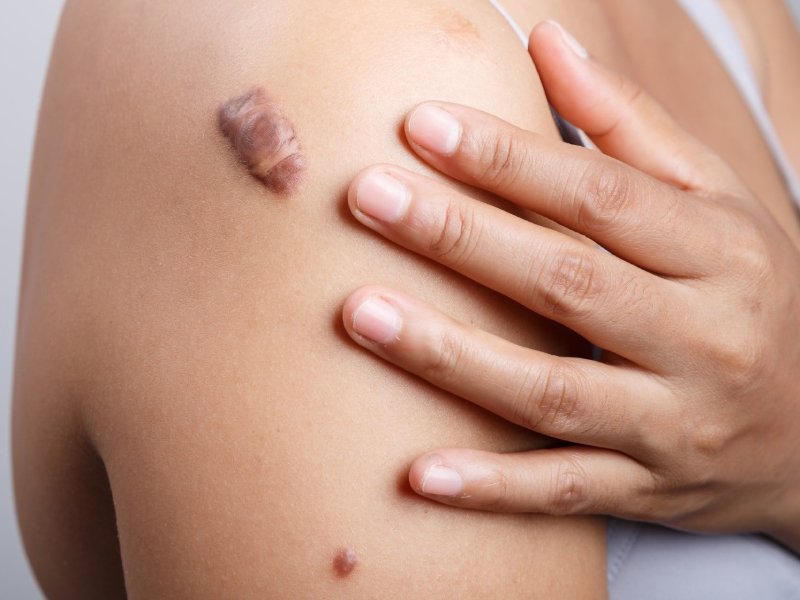
What is Keloid?
A keloid is a type of raised scar that forms due to the overproduction of collagen in response to skin injuries. Unlike regular scars, keloids grow larger than the original wound and may continue to expand over time. They are usually firm, and shiny, and can be pink, red, or dark brown, depending on the skin type.
Types of Keloid:
Keloids can be categorized based on their appearance and cause:
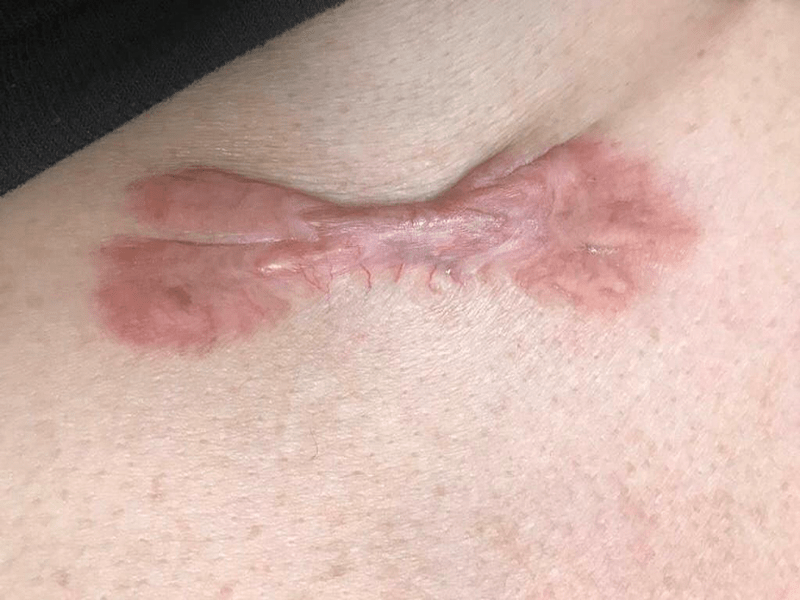
Spontaneous Keloids
Occur without any visible injury.
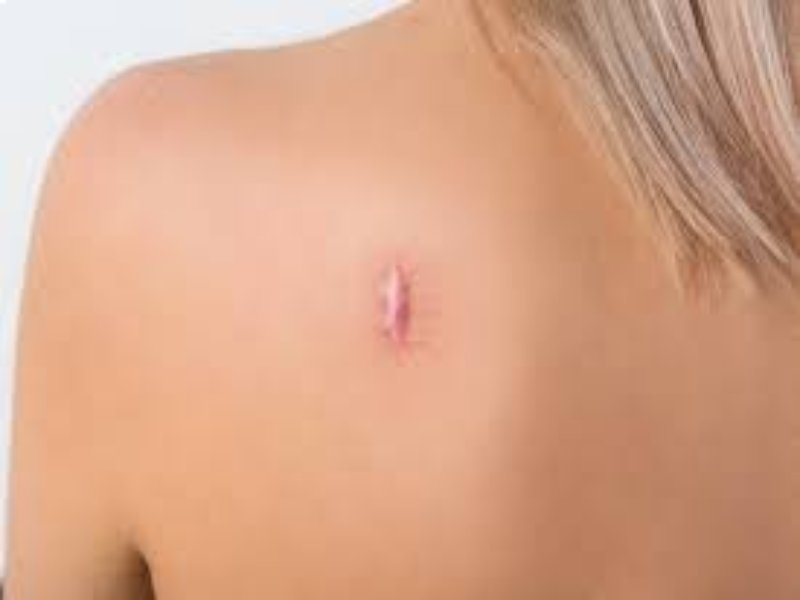
Post-Surgical Keloids
Form after surgical procedures or injuries.
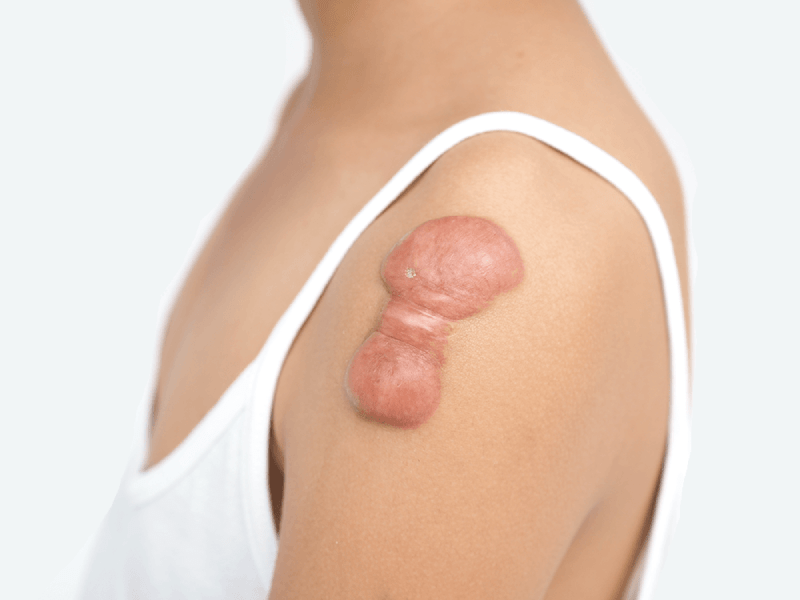
Burn-Induced Keloids
Form due to severe burns.
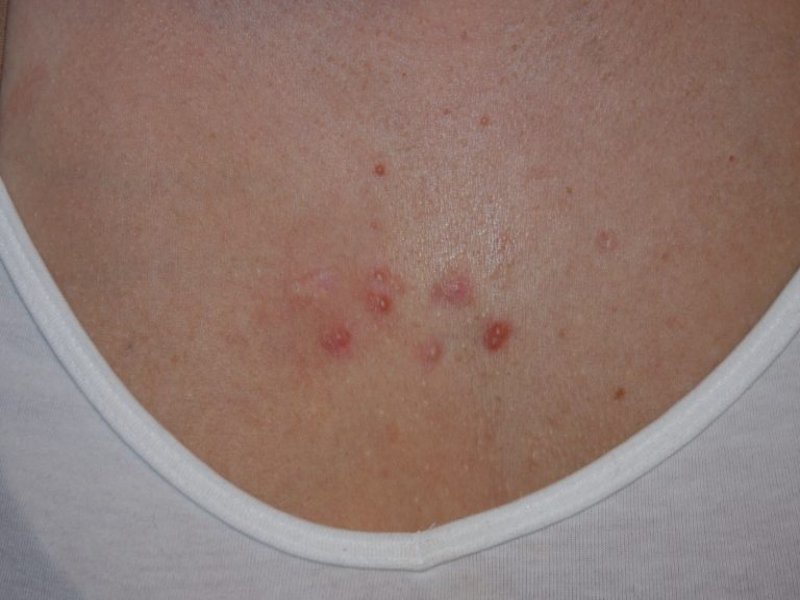
Acne Keloids
Result from severe acne scarring.
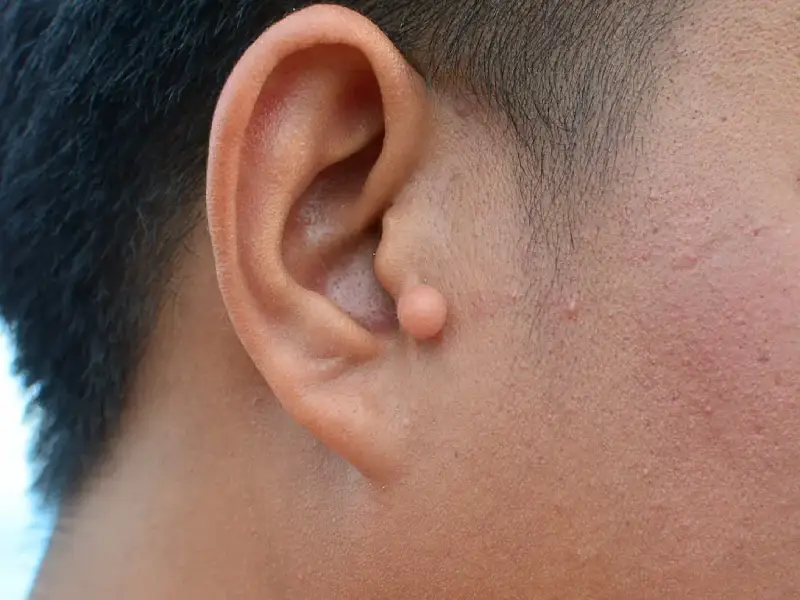
Ear Keloids
Common after ear piercings.
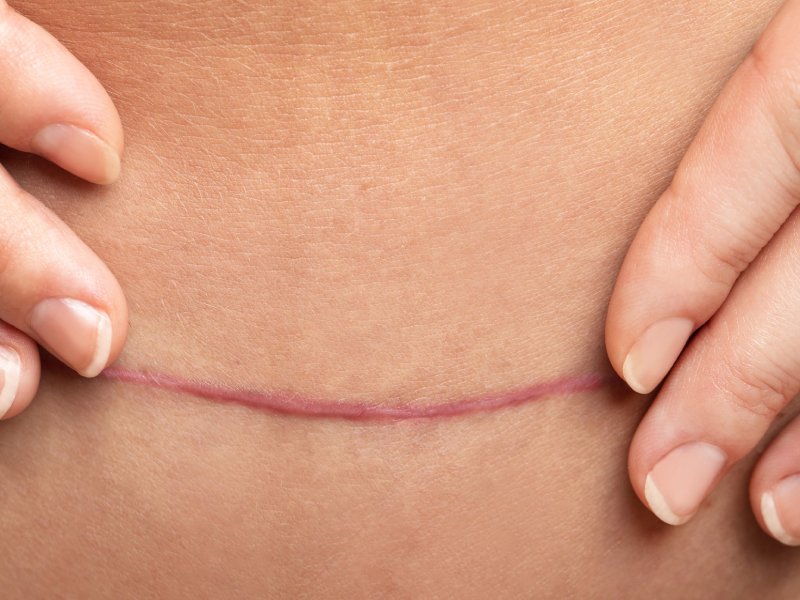
Hypertrophic Scars vs. Keloids
Hypertrophic scars remain within the wound boundary, while keloids grow beyond it.
What are the Causes of Keloid?
Keloids form when the body produces excessive collagen during the wound healing process. Common causes include:
- Skin Injuries: Cuts, burns, surgical incisions, or even acne can lead to keloid formation.
- Genetic Predisposition: A family history of keloids increases the likelihood of developing them.
- Skin Type: People with darker skin tones are more prone to keloids.
- Excessive Collagen Production: Keloids form due to an overproduction of collagen during the wound-healing process.
- Body Areas Prone to Keloids: Chest, shoulders, earlobes, and upper back are common sites.
- Hormonal Changes: Pregnancy and puberty may contribute to keloid growth.
What are the Symptoms of Keloid?
Keloids can present various signs, including:
- Raised, thick, and smooth scar tissue
- Pink, red, or darker than the surrounding skin
- Itchy or painful growths
- Growth beyond the original wound area
- Darker pigmentation compared to the surrounding skin
- Cosmetic concerns leading to emotional distress
If you notice any of these signs, it is crucial to consult a specialist like Dr. Kiran Ardad-Mane for timely intervention.
What are the Complications of Keloid?
While keloids are non-cancerous, they can lead to complications such as:
- Persistent pain and discomfort
- Restricted movement if near joints
- Psychological distress due to cosmetic concerns
- Increased risk of recurrence after removal
- Potential infections if the keloid is irritated
How is Keloid Diagnosed at Leela Superspeciality Hospital?
At Leela Superspeciality Hospital, Dr. Kiran Ardad-Mane uses advanced diagnostic techniques to evaluate keloids, including:
- Physical Examination: Evaluating the appearance, size, and texture of the scar.
- Medical History Analysis: Reviewing past injuries, surgeries, and skin conditions.
- Dermatoscopy: Detailed skin analysis.
- Skin Biopsy (if needed): To differentiate keloids from other skin conditions.
Advanced Keloid Treatment Options at Leela Superspeciality Hospital:
Dr. Kiran Ardad-Mane provides a range of cutting-edge treatments for keloid removal and management, ensuring the best results for patients. The available options include:
1. Laser Therapy:
Laser treatment is one of the most effective methods to reduce keloid scars. It works by breaking down excess collagen and promoting healthier skin regeneration. Benefits include:
- Decreased scar thickness
- Minimal discomfort
- Non-invasive and safe for all skin types
2. Cryotherapy:
Cryotherapy involves freezing the keloid with liquid nitrogen to reduce its size and flatten the scar. This method is especially effective for small to medium-sized keloids.
- Quick and painless
- Minimal side effects
- Prevents recurrence
3. Steroid Injections:
Corticosteroid injections help in shrinking keloids and reducing inflammation. The advantages include:
- Softens and flattens the scar
- Reduces itching and pain
- Prevents further growth
4. Surgical Removal:
For larger keloids, surgical excision is an option. However, it is often combined with other treatments like radiation or steroid therapy to prevent recurrence.
- Immediate removal of keloid
- Performed under local anesthesia
- Requires proper post-surgical care
5. Radiation Therapy:
Radiation therapy is used post-surgery to lower the chances of keloid regrowth. It is a highly effective method for stubborn or recurrent keloids.
6. Silicone Gel Sheets:
Silicone sheets are placed over the keloid to flatten and soften the scar. This is a non-invasive method used as a preventative approach for new keloids.
7. Emerging Treatments:
Innovative treatments such as Botox injections, 5-Fluorouracil (5-FU) injections, and Platelet-Rich Plasma (PRP) Therapy are also available for specific cases.
Post-Treatment Care and Prevention:
To ensure successful treatment outcomes and control recurrence, Dr. Kiran Ardad-Mane provides detailed post-treatment care guidelines:
- Avoid unnecessary skin trauma: Minimize piercings, tattoos, or injuries in keloid-prone areas.
- Use sun protection: UV rays can worsen scar appearance.
- Follow doctor’s recommendations: Sticking to prescribed treatments helps maintain results.
- Regular follow-ups: Periodic visits to monitor healing and prevent recurrence.
- Follow proper wound care by keeping the area clean and moisturized.
- Seek early treatment for acne or other skin disorders to prevent scarring.
What is the average cost of keloid treatment in Pune?
The average cost of keloid treatment in Pune ranges from approximately ₹6,000 to ₹15,000, depending on factors such as the size and location of the keloid, the treatment method chosen, and the number of sessions required.
Why Choose Dr. Kiran Ardad-Mane for Keloid Treatment in Pune?
Dr. Kiran Ardad-Mane is a highly skilled dermatologist and aesthetic surgeon at Leela Superspeciality Hospital, specializing in scar and keloid treatments in Wakad, Pune. Her patient-centric approach, cutting-edge technology, and personalized treatment plans make her the preferred choice for individuals seeking relief from keloids.
- Experienced Dermatologists: Led by Dr. Kiran Ardad-Mane, a specialist in keloid treatment.
- Advanced Techniques: She employs the latest laser technology, cryotherapy, and minimally invasive techniques for effective results.
- Holistic Approach: Each treatment plan is tailored according to the patient’s skin type and keloid severity.
- Comprehensive Care: From consultation to post-treatment follow-ups, she ensures complete patient satisfaction and safety.
Request a Call Back:
If you are struggling with keloids and looking for expert Keloids treatment in Pune, Dr. Kiran Ardad-Mane at Leela Superspeciality Hospital is here to help. With her expertise in dermatology and aesthetic procedures, she offers safe and effective solutions tailored to each patient’s needs. Don’t let keloids affect your confidence and well-being. Consult Dr. Kiran Ardad-Mane for the best keloid treatment in Pune and regain smooth, healthy skin!
Frequently Asked Questions (FAQs):
While treatment can significantly decrease keloid size and symptoms, recurrence is possible. Combination therapies help achieve long-term results.
Most treatments are minimally painful. Local anesthesia is used for procedures like surgery or laser therapy.
Treatment duration depends on the method used. Some require multiple sessions over weeks or months.
No, keloids are not contagious.
Home remedies may help manage signs but are not effective in fully removing keloids.
No, keloids do not disappear without treatment. They may continue to grow over time.
Yes, keloids have a tendency to recur, which is why combination treatments are often advised to prevent regrowth.

